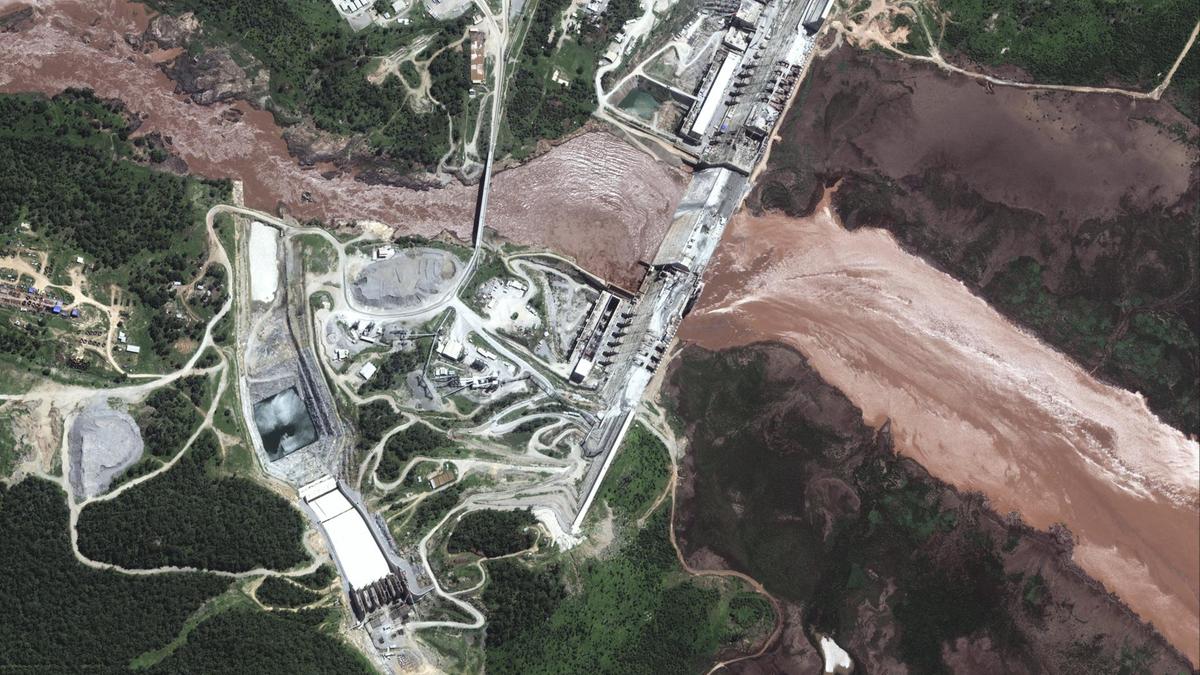Sudan has kicked off intense diplomatic efforts to resume the stalled negotiations on the Grand Ethiopian Renaissance Dam (GERD) to mobilize regional and international support for its position.
Sudanese Minister of Irrigation and Water Resources Yasir Abbas held three separate meetings with the ambassadors of the UK, France and Russia to Khartoum.
He briefed them on the latest developments in the negotiations in the past six months and his country’s stance, which calls for resolving disputes through serious dialogue.
Sudanese officials are also expected to tour some regional countries to garner support for their position.
The British Ambassador, Irfan Siddiq, vowed to help the three countries involved – Sudan, Ethiopia and Egypt – reach a satisfactory agreement.
Khartoum has hinted it would resort to alternative options since talks for nearly a decade over the operation and filling of the mega-dam have faltered.
Meanwhile, Sudan’s High Committee to follow up on the GERD met Monday to discuss the threats posed by the dam’s second filling and its impact on the safety and operation of the nearby Roseires dam and other water facilities.
Headed by Prime Minister Abdalla Hamdok, the committee stressed that it will not accept the de facto policy, which threatens its citizens and water installations on the Blue Nile.
Ethiopia is determined to fill the reservoir with 13.5 million cubic meters of water in July, whether an agreement is reached or not. It had first filled the reservoir in 2020.
Sudanese officials have expressed their disappointment with the African Union mediation in the dispute, which has made little progress since taking over the file in July 2020.
They highlighted the difficulties faced by the AU in persuading Cairo and Addis Ababa to respond to Khartoum’s request to expand the role of experts to bridge divides between the countries.
The three Nile Valley countries agree on the importance of reaching an agreement on the GERD, but there are some obstacles that hinder achieving this goal, an official source told Asharq Al-Awsat.
He cited the upcoming elections in Ethiopia as one such obstacle.
The official further explained that Sudan’s alternative options are mainly its latest diplomatic moves and contacts with Addis Ababa and Cairo.
These moves will lead to positive pressure that will help overcome the disputes, he stressed, adding that his country does not oppose any proposal on expanding the role of African experts chosen by the AU.







































admin in: How the Muslim Brotherhood betrayed Saudi Arabia?
Great article with insight ...
https://www.viagrapascherfr.com/achat-sildenafil-pfizer-tarif/ in: Cross-region cooperation between anti-terrorism agencies needed
Hello there, just became aware of your blog through Google, and found ...